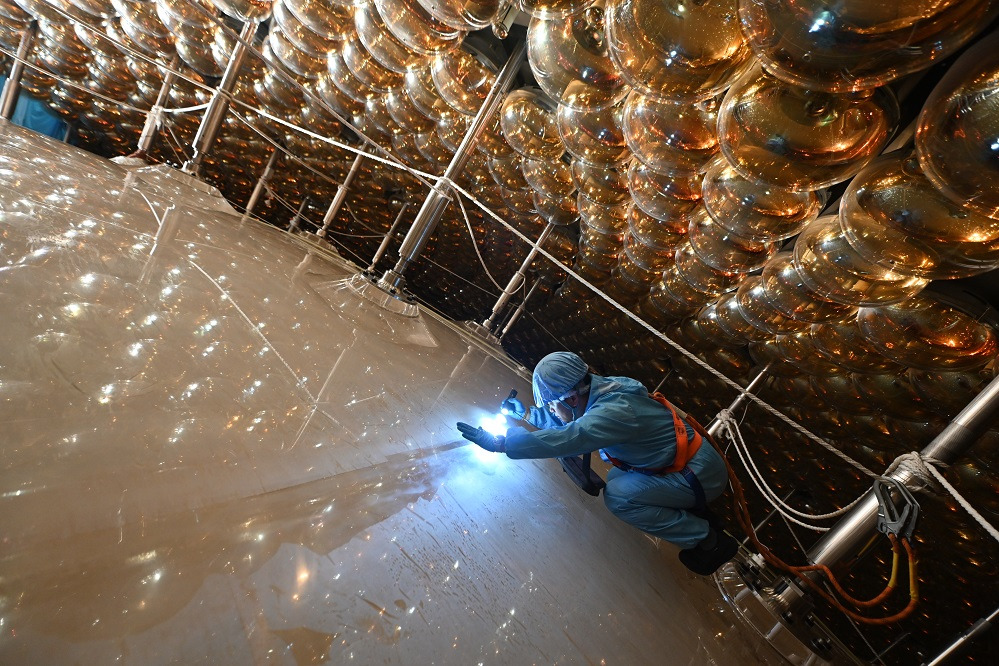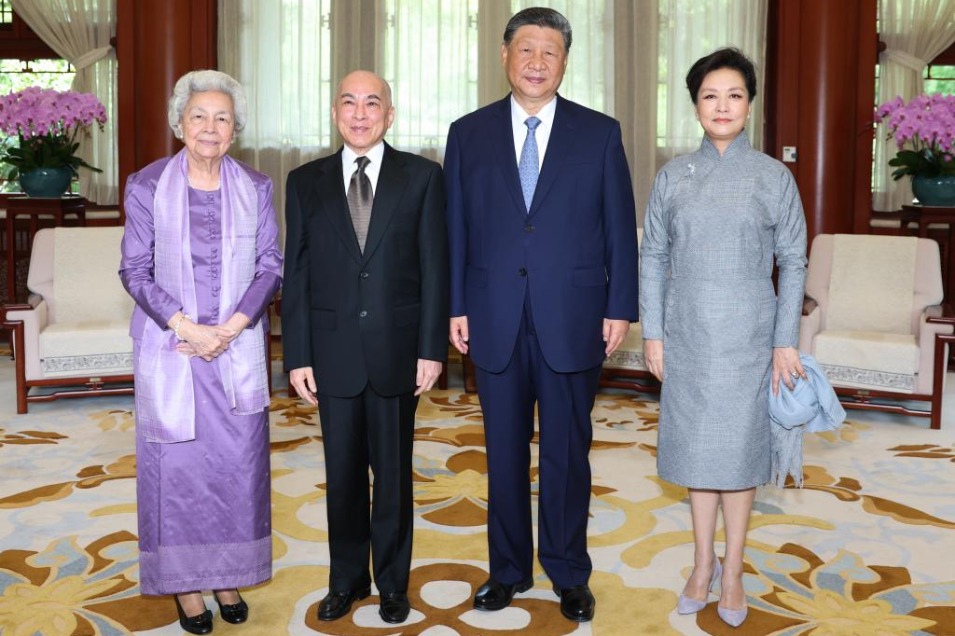A real understanding
The ancient Chinese concept of jingshizhiyong promotes studying existing conditions to produce the best results, Fang Aiqing reports.

Editor's note: China's ancient wisdom informs its contemporary leadership. In this series, China Daily explores how age-old principles and philosophies continue to steer the country's governance.
Before the 20th National Congress of the Communist Party of China opened on Oct 16, delegate Jiang Lijuan, Party secretary of Xiajiang village, Chun'an county, East China's Zhejiang province, talked about the area's development over the past two decades under the continuous attention of Xi Jinping, general secretary of the CPC Central Committee.
In April 2003, Xi, Party chief of Zhejiang at the time, visited the underdeveloped village for the first time, helping locals build biogas digesters, and stressed the importance of ecological conservation. Over the years, he visited a further three times. The village has since developed modern agriculture and tourism and, by 2021, per capita disposable income there had increased to 14 times that of 2003, Jiang says.
In 2016, Jiang, then a 27-year-old Hangzhou-based interior designer, returned to her village, turned her house into a homestay and, in November 2017, started a business. The design and marketing of the homestay is intended to attract young urbanites.
Jiang, born in 1989, incorporated her childhood memories into the homestay services — picking tea, digging sweet potatoes, catching fish from the stream, pounding maci (sticky rice snack), making soybean milk and wrapping zongzi (glutinous rice dumplings) — to arouse an idyllic sense of nostalgia for guests.
The homestay was such a success that, before long, a whole industry evolved and a growing number of villagers began to benefit from it. Then, in 2020, she took up her current position to help bring further improvements in the village and promote its green development methods in 24 nearby villages.
Once, younger generations in Chun'an, a mountainous area best known for Qiandao Lake, struggled to make it to the city for higher education and quality jobs, but now the towns and villages are counting on their young minds for a more vibrant future.
Their decisions echo the ancient idea of jingshizhiyong, a saying stating that one's study should meet present needs (jingshi) and be applied to practice (zhiyong).
It emphasizes the tradition of paying attention to the realities in society, order and norms, and valuing current affairs and practice, says Zhou Yunlei, a professor of the School of Chinese Language and Literature at Beijing Normal University.
Solid work matters
It is important to be down-to-earth.
Gu Yanwu, an ideologist and scholar who witnessed the collapse of the Ming Dynasty (1368-1644) and rise of the successive Qing Dynasty (1644-1911), partly attributes the fall of the Ming to intellectuals and their "empty words to stress the clarity of mind instead of using real knowledge to improve themselves and contribute to the country".
Gu was among intellectuals at the time who promoted the idea of jingshizhiyong.
It is a philosophy reiterated by Xi in his report to the national congress on Oct 16: "Empty talk will do nothing for our country; only solid work will make it flourish."
Born in a well-to-do family in Hong Kong, Lu Yonggen (1930-2019), once an academician at the Chinese Academy of Sciences and an expert in rice breeding, set his mind to saving the Chinese nation and contributing to its development upon seeing Hong Kong fall to Japanese invaders in 1941.
He joined the Party in 1949, worked toward liberation, and soon devoted himself to an academic career in agriculture after the founding of the People's Republic of China later that year.
Throughout his academic life, he traveled across hills and rivers to seek and collect wild rice species and developed more than 30 new varieties. Colleagues and students dubbed him a "commoner academician".His colleague Dang Linxi told China Daily in a 2019 interview that Lu worked like a farmer as he conducted field research and looked for wild rice, rolling up his trousers to walk through rice paddies.
Lu once said: "True scientists must be loyal patriots and take the needs of the country and the people as the driving force of their work."
He served as the principal of South China Agricultural University in Guangzhou, Guangdong province, from 1983 to 1995, and in 2017, he and his wife, Xu Xuebin, also a professor there, donated all their life savings, totaling around 8.8 million yuan ($1.21 million), to the university to set up a special education fund for young teachers and students in need.
Also among the delegates to the 20th CPC National Congress are Zhu Youyong, 67, an academician of the Chinese Academy of Engineering who specializes in plant pathology, and Lin Zhanxi, 79, a professor at Fujian Agriculture and Forestry University who invented Juncao technology in the 1980s, which uses chopped grass as a surface for growing edible and medicinal mushrooms, and as forage for livestock. Both, over a long period, worked in the countryside for research and contributed to poverty-alleviation trials.
As the country strives to build a better life for its huge population of rural people and revitalize their hometowns to reach common prosperity, agricultural scientists, whose achievements have also been helping the world tackle poverty issues, are gaining greater respect, especially from the younger generation.
Four years ago, Zhu presented a huge potato that local farmers of Lancang county, Southwest China's Yunnan province, had grown with his guidance, at an interview during the "two sessions" — the annual gatherings of the National People's Congress, China's top legislature, and the National Committee of the Chinese People's Political Consultative Conference, the country's top political advisory body. A short video of the scene became popular on social media. Zhu introduced and promoted the potato and the techniques used to grow it.
This time, in the interview before the opening session of the CPC national congress, he introduced the updated research findings of his team that have enabled locals to grow rice on arid mountainous land in rural Yunnan.
"Jingshizhiyong provides wisdom to settle ourselves," says Cao Runqing, an associate professor at the philosophy teaching and research department of the Party School of the Central Committee of the CPC in Beijing, noting that people can fulfill themselves by serving society, and such a process maximizes the benefit for all.
Chinese people show a strong tendency to participate and make a change, and reflect on actions to improve future practice, Cao adds.
Mission for all
Back in the Western Zhou Dynasty (c.11th century-771 BC), when the Chinese had been freed from the shackles of supernatural concepts and had just established the subjectivity of humans, they attached importance to social awareness and practice to maintain their regime and social stability, according to Cao.
Further interpretations of the idea by Confucius, Mencius and other ideologists before the Qin Dynasty (221-206 BC) stressed that governors and intellectual officials should be morally refined themselves — with benevolence and righteousness — and take the welfare of the family, society and the whole world as their personal responsibility.
Great ancient literati have left behind profound lines expressing their political ideals and concern for the country and the people. Tang Dynasty (618-907) poet Du Fu wrote: "Where can I get a big broad shelter a thousand, ten thousand spans wide, huge roof that all the world's poor people can share with smiling faces?"
One of the most famous works of Song Dynasty (960-1279) politician and literati Fan Zhongyan reads: "Be the first to concern for the country and the last to enjoy."
Even today, Chinese learn both the sentences by heart from childhood.
Another widely quoted sentence from the Song and Ming dynasties, a high peak of ancient Chinese philosophy, is: "Set spiritual value for the world in general; establish meaning of life for men at large; perpetuate waning wisdom of ancient sages; build foundation of lasting peace for the future." The line was written by thinker and educator Zhang Zai (1020-77).
Xi himself quoted this sentence twice in 2016 to encourage intellectuals, model workers, youths and philosophy and social sciences scholars to hold the country in their minds, move with the times, learn through the changes and give voice to their thoughts.
While Xi clarified in the Oct 16 report that the Party's "central task" is to build China into a great modern socialist country in all respects, and to advance the rejuvenation of the Chinese nation on all fronts through a Chinese path to modernization, he was inferring a problem awareness and practice-oriented value of the Party, which conveys a facet of jingshizhiyong, according to Zhou, the BNU professor.
The people-centered aspiration and sense of mission is also a demand for Party members where the thoughts of jingshizhiyong are embedded, Cao says.
Back in ancient times, jingshizhiyong was a requirement for social elites, while it is worth noting here, as Zhou puts it, that it has now become a mission and opportunity for all the people. As the Chinese say: "History is made by the people."

Today's Top News
- A misjudgment of situation in the first place, destabilizing AUKUS deal may bite the dust: China Daily editorial
- Welcome would be welcomed if sincere: China Daily editorial
- Xi and his wife meet Cambodian King, Queen Mother
- Xi meets Russian State Duma chairman
- Parade a tribute to Chinese people's sacrifices in WWII
- SCO will strongly uphold multilateralism






























